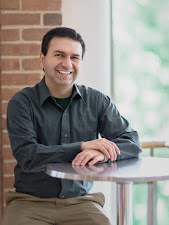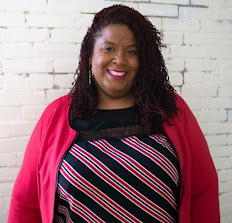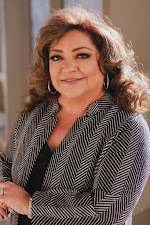- 66% of rural workers.
- 61% of Black workers.
- 55% of Hispanic workers.
- 61% of veteran workers.
- 53% of white workers.
- 31% of Asian American and Pacific Islander workers.
ACT Newsroom & Blog
Links
Categories
Archive
-
►
2026
(1)
- ► January 2026 (1)
-
►
2025
(57)
- ► December 2025 (2)
- ► November 2025 (5)
- ► October 2025 (4)
- ► September 2025 (5)
- ► August 2025 (7)
- ► April 2025 (8)
- ► March 2025 (3)
- ► February 2025 (3)
- ► January 2025 (2)
-
▼
2024
(46)
- ► December 2024 (1)
- ► November 2024 (7)
- ► October 2024 (3)
- ► September 2024 (5)
- ► August 2024 (2)
- ► April 2024 (3)
- ► March 2024 (4)
- ► February 2024 (5)
-
►
2023
(49)
- ► December 2023 (2)
- ► November 2023 (4)
- ► October 2023 (4)
- ► September 2023 (3)
- ► August 2023 (4)
- ► April 2023 (5)
- ► March 2023 (4)
- ► February 2023 (6)
- ► January 2023 (5)
-
►
2022
(44)
- ► December 2022 (1)
- ► November 2022 (1)
- ► October 2022 (4)
- ► September 2022 (4)
- ► August 2022 (2)
- ► April 2022 (4)
- ► March 2022 (8)
- ► February 2022 (6)
- ► January 2022 (3)
-
►
2021
(62)
- ► December 2021 (1)
- ► November 2021 (4)
- ► October 2021 (2)
- ► September 2021 (4)
- ► August 2021 (5)
- ► April 2021 (11)
- ► March 2021 (10)
- ► February 2021 (5)
- ► January 2021 (3)
-
►
2020
(58)
- ► December 2020 (4)
- ► November 2020 (4)
- ► October 2020 (2)
- ► September 2020 (5)
- ► August 2020 (4)
- ► April 2020 (6)
- ► March 2020 (4)
- ► February 2020 (5)
- ► January 2020 (4)
-
►
2019
(94)
- ► December 2019 (3)
- ► November 2019 (8)
- ► October 2019 (8)
- ► September 2019 (7)
- ► August 2019 (4)
- ► April 2019 (10)
- ► March 2019 (7)
- ► February 2019 (12)
- ► January 2019 (6)
-
►
2018
(101)
- ► December 2018 (6)
- ► November 2018 (17)
- ► October 2018 (8)
- ► September 2018 (12)
- ► August 2018 (7)
- ► April 2018 (9)
- ► March 2018 (9)
- ► February 2018 (6)
- ► January 2018 (9)
-
►
2017
(58)
- ► December 2017 (8)
- ► November 2017 (4)
- ► October 2017 (9)
- ► September 2017 (9)
- ► August 2017 (5)
- ► April 2017 (2)
- ► March 2017 (3)
- ► February 2017 (4)
- ► January 2017 (3)
-
►
2016
(15)
- ► November 2016 (1)
- ► October 2016 (2)
- ► August 2016 (1)
- ► April 2016 (2)

Breaking Down Barriers for Skilled Workers
ACT
January 25, 2024
Category:
Guest Blog |
Research |
Workforce |
ACT is collaborating with Opportunity@Work on a research project to better understand the experiences of the more than 70 million American ...
.png)
‘Be Part of the Solution’
ACT
January 18, 2024
Category:
Educator Resources |
Equity |
Guest Blog |
ACT established the ACT Scholars program to nurture the academic talent of graduate and community college students at the University of Iow...
To commemorate their journeys from application to graduation, ACT has invited these scholars to share their stories. Eyliah Smith-Davis is a Kirkwood Community College student pursuing an associate of applied science degree with a focus in human services. She hopes to continue her education journey after graduation and one day earn a master’s in applied psychology to pursue a career in children’s behavioral psychology.

Commemorating the Life and Legacy of Dr. King
ACT
January 11, 2024
Category:
Equity |
In celebration of MLK Day on Jan. 15, ACT team members reflected on this question: “How do you personally carry forward Dr. Martin Luther Ki...
I’m attending the MLK NOW event in Cedar Rapids on Jan 13.
Alex Casillas, principal research psychologist; Social, Emotional, and Academic Learning Research
One quote from Dr. King that has always resonated is, “I have a dream that my four little children will one day live in a nation where they will not be judged by the color of their skin but by the content of their character.” This is part of the reason why I do the work that I do: research and develop tools that can help kids and adults better understand and develop their social and emotional skills – for example, getting along with others, keeping an open mind, and maintaining composure.
The urgency of this work has become especially clear since having my own children and, more recently, seeing how schools, kids, and the adults who support them were affected by the COVID-19 pandemic. I commemorate Dr. King's legacy every day by continuing to emphasize equity in both my professional and personal life.
Christina Gordon, vice president, Communications
The most important way to commemorate Dr. King’s legacy is to be intentional, on MLK Day, and every day about the ways in which I bring his dream to life. That means intentionality about language, actions, and relationships, in both my professional and personal life. As Dr. King said, “Human progress is neither automatic nor inevitable … Every step toward the goal of justice requires sacrifice, suffering, and struggle; the tireless exertions and passionate concern of dedicated individuals.”
Living his legacy means doing not just what feels good or easy but understanding that the work of equity requires struggle and sacrifice, and it may not always feel good. I’ll be sitting with that message, intentionally, this MLK Day, and reflecting on the work yet to be done and how I can affect change in my little corner of the world.
Tina Gridiron, senior vice president, ACT’s Center for Equity in Learning
One of my favorite Dr. King quotes is, “If you can’t fly, then run; if you can’t run, then walk; if you can’t walk, then crawl; but whatever you do, you have to keep moving forward.” This quote reminds me that we each play a role and have the power make the community better where we live, work, and serve.
Through many trials and serious dangers, King never gave up. And I strive to honor his legacy by staying engaged in activities and service projects designed to make life better for others. On MLK Day, I plan to participate in the Seeds of Caring Indianapolis MLK Day of Service at the Madam Walker Legacy Center, packing snack bags for neighbors who are unhoused.
Kedesha Hall, engagement specialist, Student Services
I live Dr. King's “I Have a Dream” speech by taking everything that life throws at me and getting back up. Every step I take is a step toward my future. Dr. King's philosophy was needed to help my visions come alive.
Danielle Hatchett, social media strategist II, Communications
When I think about how to honor the legacy of Dr. King, I think about how he used his many gifts to create change and advance the rights of Black people, people of color, and those living in poverty. This year I am committed to using my gifts in a volunteer capacity to build power for Black businesses and businesses owned by people of color. I will also be intentional in purchasing from those businesses that directly pour resources and economic support into marginalized communities.
The world would be a different place if Dr. King had not had the courage to use his gifts. We all have a responsibility to use our abilities to make a difference.
Nancy Lewin, senior director, ACT's Center for Equity in Learning
There are three major lessons that I take forward with me on MLK Day, and every day of the year, as these are values that I believe to be true: equality and justice are meant for all; we must maintain courage in the face of adversity; and education and awareness are important to achieving systemic change.
I plan to read to my grandchildren a few of our books about MLK and talk about how our everyday behaviors can advance and guide our communities.
Schwann Logan, account executive, Client Relations
To carry forward Dr. King's legacy, I simply practice kindness and empathy in my daily life.
Because I live in Memphis, my family and I plan to visit the National Civil Rights Museum at the Lorraine Motel, where Dr. King was assassinated. This is a yearly tradition.

ACT is Focused Forward in 2024
ACT
January 10, 2024
Category:
ACT Updates |
Happy New Year! It’s hard to believe another year is ahead of us, with all the possibilities it portends. As I think back on 2023, I’m proud...
Happy New Year! It’s hard to believe another year is ahead of us, with all the possibilities it portends. As I think back on 2023, I’m proud of what ACT was able to accomplish – and I appreciate this opportunity to share briefly how those achievements are setting us on a strong course for 2024.
Last year, ACT continued to demonstrate its role as a thought leader in education and workforce. In October, we convened more than 400 workforce and economic developers, employers, human resource specialists, educators, and industry leaders for our sixth annual Workforce Summit. The event, our major yearly outreach to this key constituency, focused on resolving talent shortages, strategies for preparing emerging workers, upskilling current workers, building skills-based ecosystems in communities, the future of workforce learning, new paradigms of workforce engagement, supporting workers in transition, and building resilient economies.
We also continued to advance our strong research agenda. We brought the insights of students to the public through our student voice series, which has examined their perspectives around issues such artificial intelligence, education disruptions caused by the COVID-19 pandemic, and the effects of the pandemic on students’ college and career choices, garnering media coverage that collectively had more than 390 million views. ACT’s research on grade inflation, first released in 2022, continued to be a newsmaker with new research in 2023 that showed persistent subject-matter grade inflation, particularly in math and science. And in October, ACT released our annual National Graduating Class Report for 2023, which contained data on the “COVID cohort,” showing that a previously seen trend in declining college and career readiness had been accelerated by the pandemic.
It’s not just our more than 60 years of data and insights that makes me proud. Last year, ACT told you that we would be bringing digital testing to the national market – something we’ve successfully been doing in state, district, and international testing for years – and we did! In December we delivered the first pilot test administration, and we’re on track to make the online version of the test available to all students this fall.
But perhaps the most exciting thing we did last year was announce ACT’s vision for the future: By 2032, ACT will empower 20.2 million more learners to exit high school ready for postsecondary and work opportunities. And it is with that vision in mind that ACT is focused forward, looking ahead to what we can deliver in 2024. Our holistic suite of resources helps students discover and navigate pathways toward college and career readiness and success through:
- Amplified connections and access for students to college and career opportunities.
- New and enhanced products that reflect redefined readiness.
- Actionable insights and analytics to support decision-making and recruitment and retention strategies.
We have much planned as we look ahead. Guided and driven by our long-term strategic vision, we will be expanding and enhancing the solutions we offer to help learners and their champions assess their knowledge and skills – as well as the processes and platforms by which we make meaning from those assessments and translate them into insights of value for those users as well as educators, employers, and others who share a stake with us in the education and workplace ecosystem. Over the course of this year, you’ll hear more from me and other ACT leaders about how we are focused forward – laser focused – on delivering on our vision and how we intend to get there. We can’t do this without you, so please stay connected, reach out, and watch this space for more news from ACT. I can’t wait for all we’ll accomplish together in 2024 and beyond!


.jpg)
.jpg)


.png)